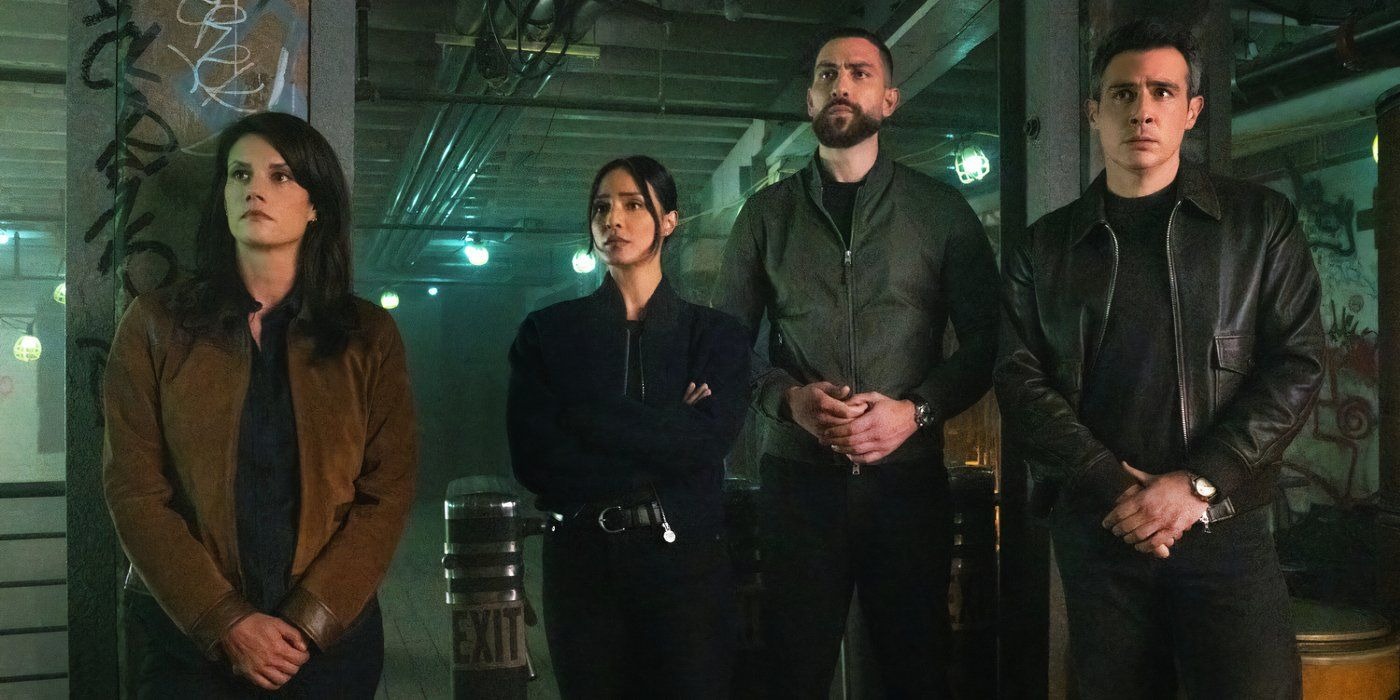
Introduction: The Problem Nobody Wanted to Admit
Let’s be honest—FBI: International was struggling to stay believable. Sure, it had action, drama, and cool European backdrops. But something always felt…off. How could a team of FBI agents operate freely across foreign countries without a hitch? That’s where the CIA’s latest update slides in like the perfect puzzle piece, giving the show a much-needed reality check—and fan-favorite boost.
What’s Wrong With FBI: International?
The problem is simple yet glaring: jurisdiction. The FBI, by definition, is a domestic U.S. agency. Yet in FBI: International, we’re supposed to believe they have full rein across borders like it’s no big deal. Realistically? That’s not how global operations work. And viewers were starting to notice.
The Missing Puzzle Piece: Realistic Intelligence Integration
Here’s where it gets interesting. The CIA operates outside the U.S.—its very mission is foreign intelligence. Unlike the FBI, the CIA has legal backing to meddle overseas. Without their presence, the show was starting to look like fan fiction disguised as a crime drama. Enter: the CIA operative character.
Why CIA Inclusion Matters in a Global Series
FBI: International needed something to ground it. And nothing grounds a global crime procedural like actual global intel. Adding a CIA character not only makes the show smarter—it makes it believable. The missions now carry diplomatic weight. The arrests feel legally plausible. Suddenly, you’re not just watching actors pretend to be heroes in Budapest or Berlin—you’re watching something that could actually happen.
Meet the Game-Changer: The CIA Character Stealing the Spotlight
So who is this magical fix? The writers have introduced a new CIA liaison character—cool, collected, and trained to operate behind enemy lines. They’re not just tagging along for exposition—they’re driving missions forward with insider knowledge, classified intelligence, and, crucially, international authority.
Fiction vs. Function: FBI Abroad Isn’t That Simple
Before this character appeared, the show asked us to believe the FBI had free rein across dozens of countries. But that’s not how law enforcement works. The CIA liaison now acts as a bridge between fiction and function, providing the narrative permission the FBI team needs to actually do their jobs overseas.
How This Character Bridges a Gaping Logic Hole
This character doesn’t just show up to drop intel—they smooth diplomatic wrinkles, secure local cooperation, and even negotiate with other intelligence communities. Suddenly, when the Fly Team shows up in Rome or Vienna, it’s not just action for action’s sake. It’s supported by realistic intelligence protocol.
Global Reach Needs Global Intel
Think of it this way: The FBI has legs, but the CIA has eyes. One operates on the ground, the other sees the whole board. By integrating the two, the show becomes a smarter chess game instead of a one-note shooter. The CIA character turns reactive missions into preemptive strikes, which is exactly how real-world ops unfold.

Fixing the ‘Too American’ Vibe of the Series
Critics often slammed FBI: International for being “too American abroad.” In reality, U.S. agents can’t just act unilaterally in France or the Netherlands. But with a CIA liaison? Now it feels less like America playing world police and more like coordinated, legal counterterrorism. That distinction matters.
The Fan Reaction: Subtle But Loud
Reddit threads and fan forums have quietly celebrated this shift. “Finally, someone who makes sense!” one user wrote. Another chimed in, “Why wasn’t this character here since day one?” Viewers are noticing that the show feels different—even if they can’t always pinpoint why. That’s the magic of smart writing.
Why the CIA Character Works Where Others Don’t
Previous attempts to add international flair—Interpol agents, embassies, or even rogue operatives—always fell flat. Why? Because they were temporary. But the CIA liaison? They’re a mainstay. Their purpose is structural, not decorative. That permanence gives the show gravitas.
Boosting Credibility Without Breaking Format
Here’s the brilliance: the CIA character doesn’t disrupt the show’s flow. They integrate naturally into the mission structure. There’s no clunky exposition or unnecessary conflict—just quiet expertise that enhances every scene. It’s seamless and believable.
Comparing the Character to Other Procedural Power Moves
Think of this as the NCIS: LA Hetty Lange effect or the Jack Bauer CTU power-up from 24. Those characters didn’t just add depth—they defined the tone. The CIA liaison is on that same trajectory: a tone-setter, not a guest star.
The Writers’ Strategic Play: What This Means Long-Term
By solving the show’s believability issue, the CIA character opens up massive story potential. Espionage arcs, undercover plots, real-world parallels—you name it. It’s no longer just “FBI in Paris.” It’s global crime drama with actual stakes.
Conclusion: A Simple Addition With Big Payoff
Sometimes the fix isn’t flashy—it’s functional. By introducing a CIA character, the showrunners of FBI: International didn’t just add a new face; they solved a foundational problem. They made the show smarter, tighter, and more grounded. It’s a reminder that in TV, just like in intelligence, the quiet players often make the loudest impact.